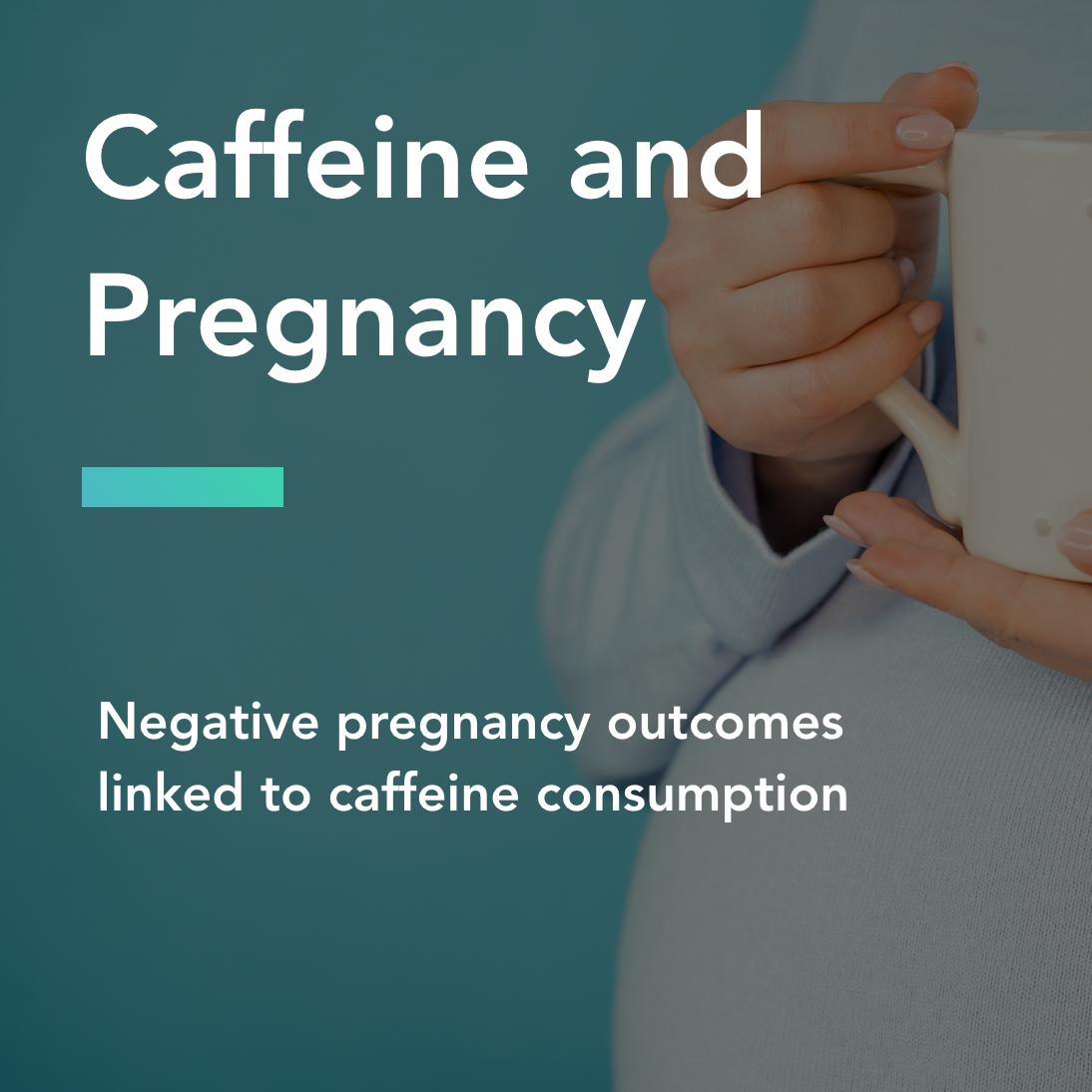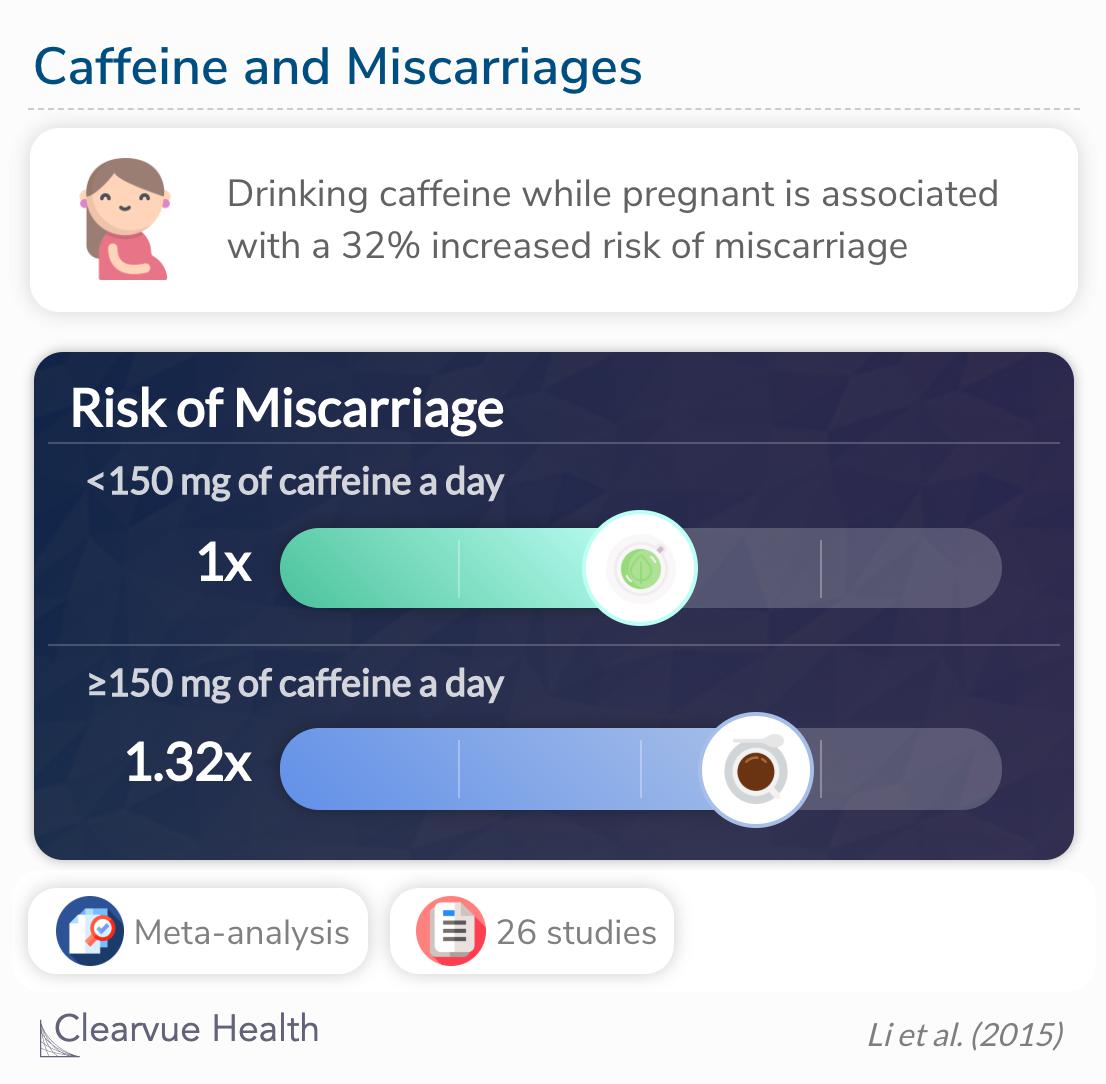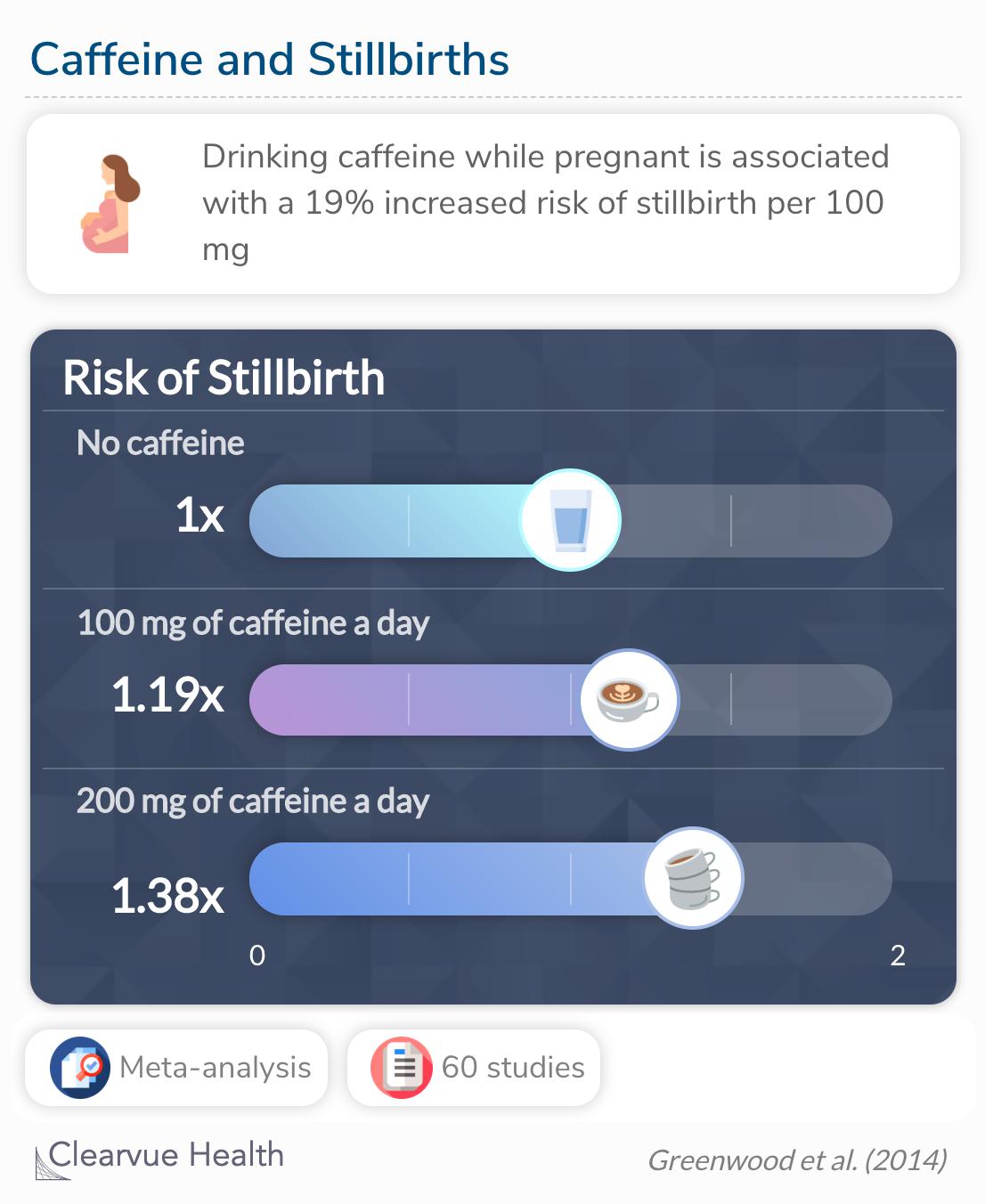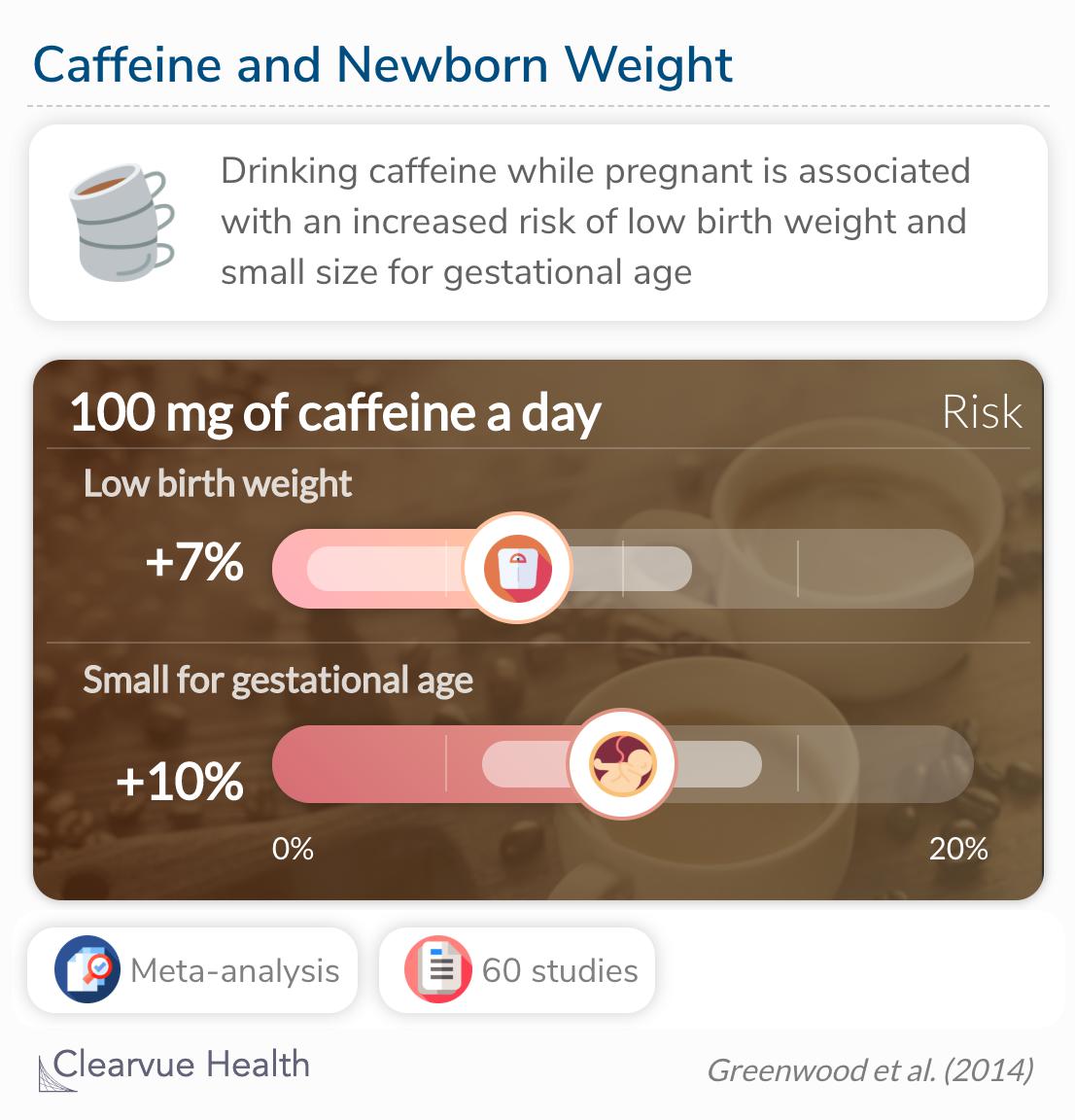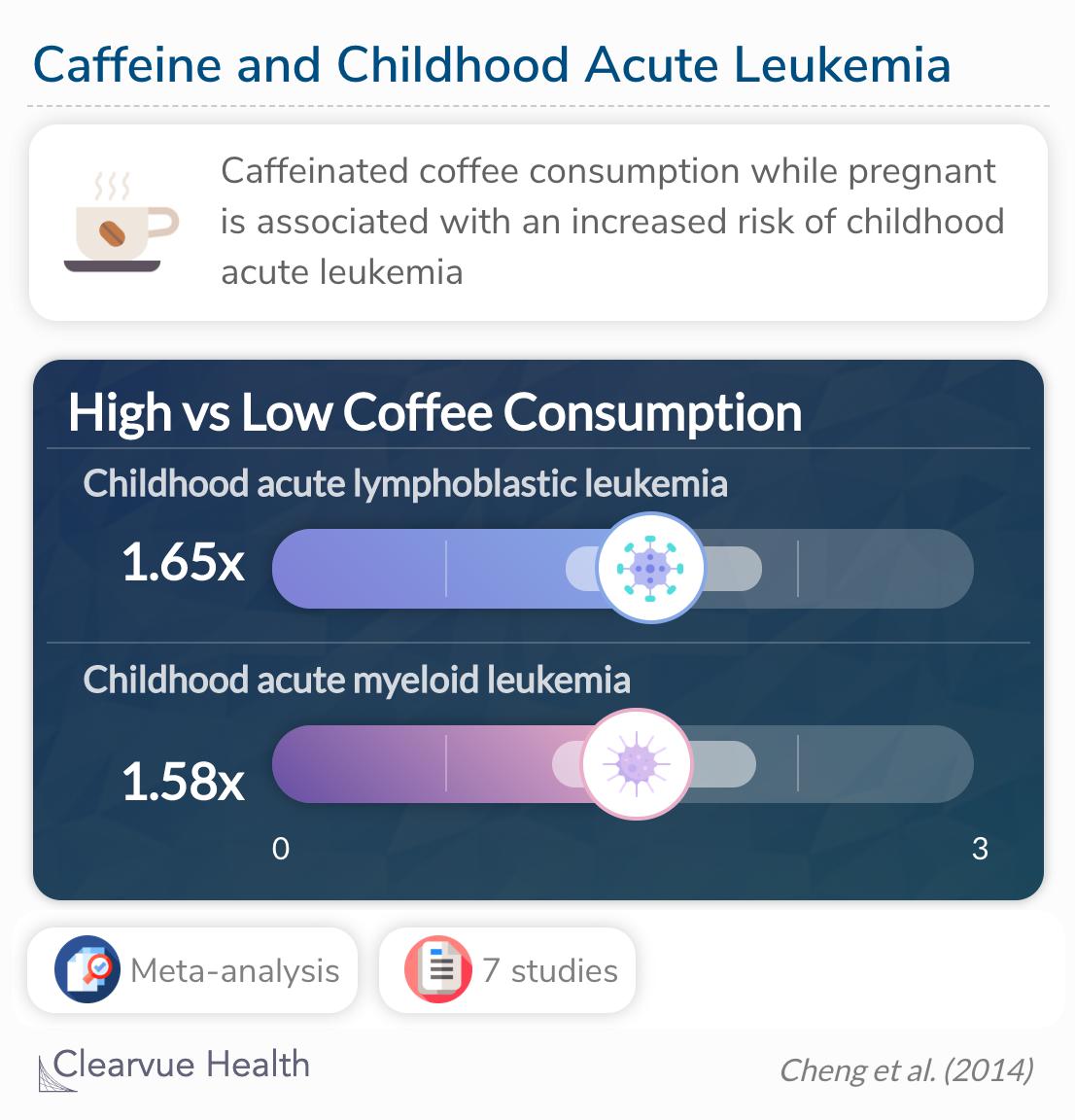Caffeine and pregnancy: Negative pregnancy outcomes linked to caffeine consumption
Women are advised to change some of their habits while pregnant. For example, it is seriously frowned upon for a woman to smoke or drink alcohol while pregnant. There are also certain foods that a pregnant woman should avoid such as raw meat or fish. Many studies caution against caffeine consumption while pregnant. The data suggest a strong association between caffeine consumption and negative pregnancy outcomes.
Miscarriage
Miscarriage is when an embryo or fetus dies before the 20th week of pregnancy. Around 10-20% of pregnancies end in miscarriage. A review of 26 relevant studies suggests that caffeine can increase the risk of miscarriage.
The odds ratio expressed as a percentage increase in the overall risk of miscarriage was 32% (95% CI 1.24 to 1.40).
Source: A meta‐analysis of risk of pregnancy loss and caffeine and coffee consumption during pregnancy
Each of the studies reviewed indicated caffeine as a factor associated with pregnancy loss. After pooling the data together, researchers concluded that drinking caffeine during pregnancy increased the odds of miscarriage by an average of 32%. They also found a dose-response, meaning that women who consumed the most caffeine had the highest odds of miscarriage.
Stillbirth
A stillbirth is the loss of a baby before or during delivery. Both miscarriage and stillbirth describe pregnancy loss, but the loss is considered a stillbirth if it occurs after the 20th week of pregnancy. A different review of caffeine and pregnancy found similar outcomes as with the previous study.
The pooled estimate of RR from linear dose-response meta-analysis was 1.19 (95 % CI 1.05–1.35) per 100 mg/day of caffeine (P = .007).
Source: Caffeine intake during pregnancy and adverse birth outcomes: a systematic review and dose–response meta-analysis
In this case, the researchers found a strong dose-response to caffeine. Their evidence shows that the risk of stillbirth increases with each 100mg/day of caffeine consumed. The authors estimate that women consuming high levels of caffeine per day could be increasing their risk of stillbirth by as much as fivefold. In all, the risk of miscarriage and stillbirth increases with caffeine consumption during pregnancy.
Small for gestational age
The effect of caffeine consumption during pregnancy continues after childbirth. Low birth weight describes babies who are born weighing less than 5 pounds and 8 ounces. Babies who are considered small for gestational age are in the bottom 10th percentile of birth weight compared to other babies born during the same term. A number of complications are associated with low birth weight including low blood sugar, low oxygen levels, breathing problems, and body temperature regulation problems.
Dose-response analyses found that every additional 100 mg per day of maternal caffeine was associated with an increased risk for LBW of 7% (95% CI 1.01 to 1.12) and an increased SGA risk of 10% (95% CI 1.06 to 1.14).
Similar to the previous studies, there was a range of approximations regarding the risk increase for low birth weight and small for gestational age. Nevertheless, their was an overall consensus that caffeine can increase the risk of low birth weight. Likewise, the researchers estimate that the risk of low birth weight and small for the gestational age increase along with the consumption of caffeine.
Childhood acute leukemia
Lastly, another review looked at the link between caffeine consumption during pregnancy and childhood acute leukemia. Leukemia is a type of cancer that targets blood and bone marrow. Acute lymphoblastic leukemia is the most common childhood cancer and occurs when a cell develops errors in its DNA. Acute myeloid leukemia is a type of cancer in which the bone marrow makes a large number of abnormal blood cells. Childhood cancer can be devastating to families and difficult to treat depending on the prognosis.
Maternal coffee consumption (high-level drinkers vs non/lowest drinkers) was statistically significantly associated with childhood ALL (1.65; 95% CI, 1.28–2.12) and childhood AML (1.58; 95% CI, 1.20–2.08).
Source: Maternal coffee consumption during pregnancy and risk of childhood acute leukemia: a metaanalysis.
The dataset discovered an increased risk associated with caffeine consumption during pregnancy for both types of childhood acute leukemia. These studies are less comprehensive than the others above, nevertheless, they found strong evidence for the association. As with each of these studies, the research does not claim that caffeine is the cause of childhood acute leukemia. Rather, it suggests that children exposed to caffeine while in the womb may be at higher risk compared to those who were not.
Final thoughts
A large body of evidence suggests that caffeine consumption is associated with an increased risk of miscarriage, stillbirth, and low birthweight. Data was weaker on preterm births. There is also evidence to suggest that caffeine consumption during pregnancy may increase a child's risk of developing leukemia. This evidence is vast and convincing. Avoiding caffeine while pregnant is a relatively simple way to promote healthy gestational growth and success after birth.
